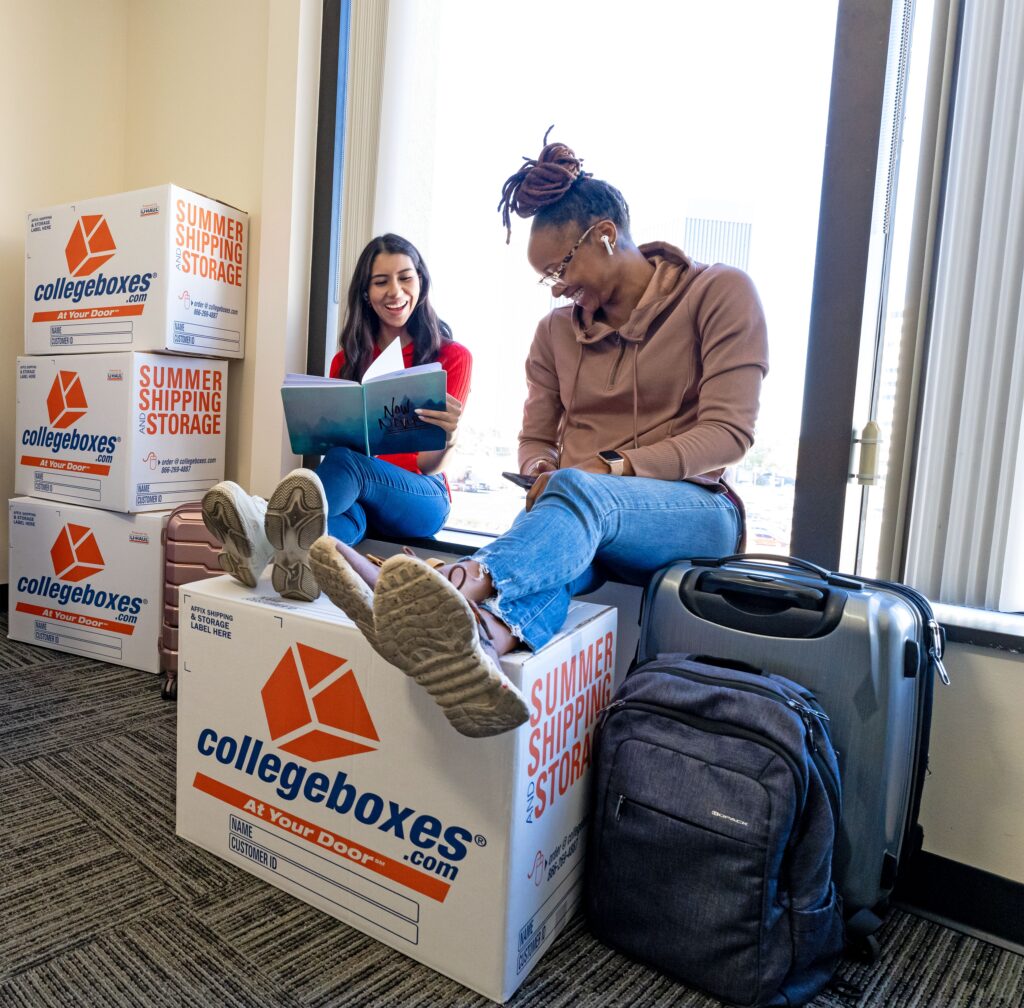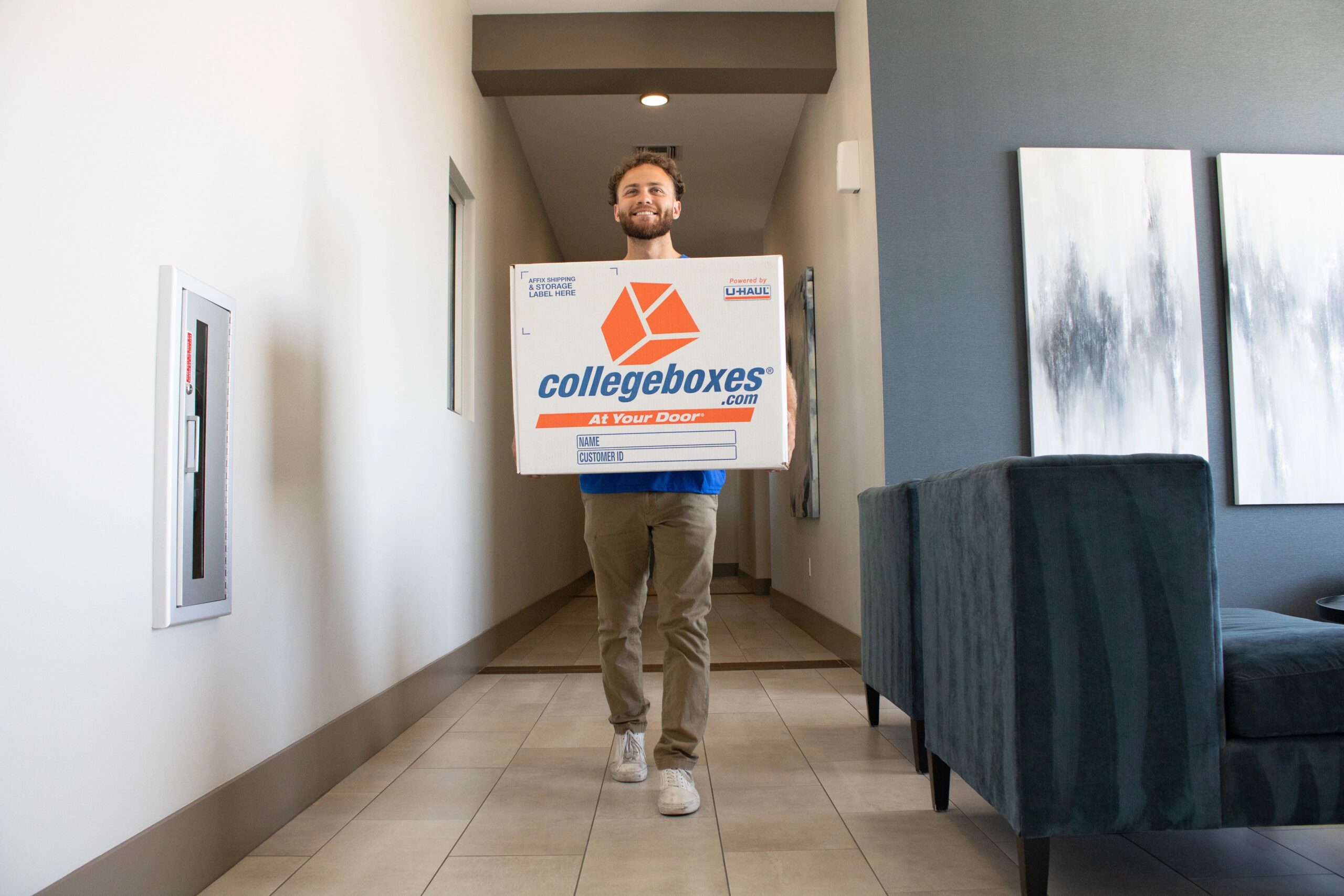College comes with several new responsibilities and is full of opportunities to grow more independently. For many students, a significant step toward independence is moving out of the dorms, signing a lease, and living in an apartment near campus. Signing a lease can be a daunting process and may raise a lot of questions, lucky for you, Collegeboxes has the answers. We want to provide you with all the information you need to make the right choice and ensure a seamless transition.
1. What is a Lease?
Before signing a lease, understanding what a lease is can help clarify some questions you may have. A lease is a legally binding contract that outlines the terms and policies for renting a property. It showcases the rent price, important dates, fees, and general information about the property or apartment building.
Be prepared for a long and extensive rental lease. A lot of important information will be in the fine print, so pay extra attention! Going through and reading the apartment lease agreement in its entirety can help you see if the apartment is right for you.
2. What Can I Afford?
One of the biggest concerns before signing a lease is the cost of rent. Establish a comfortable and affordable price range for your rent. It can help narrow down your choices and get you closer to signing a lease.
A good rule of thumb to use when figuring out how much you should be spending on rent is the 50/30/20 rule. The 50/30/20 rule suggests splitting your monthly income into 3 categories: 50% on needs, 30% on wants, and 20% on savings. Look at your monthly income and your necessary expenses each month, such as rent. Determine what rent prices can fit comfortably in 50% of your monthly income and will allow you to cover the rest of your expenses.
You can always adjust these percentages to suit your needs. But the idea is to find a rent price that allows you to cover your rent and your other expenses every month.
Consider living with roommates, as it is a great way to cut down on rent costs. Sharing an apartment with roommates allows you to split the rent. Also, the more roommates you have the lower your individual share will be. This is a popular way to save on rent and offers the opportunity to live with friends or meet new people.

3. How Far is it?
Another important step in signing a lease is ensuring the apartment’s location meets your needs. If you will be biking or walking to class, consider looking at apartments closer to your college campus. If you will be taking the bus, look to see if there are bus stops close or nearby.
For those of you who will be driving to class, this allows you to consider apartments farther away from campus, giving you more options. However, ensure the commute will work with you and your class schedule.
4. What Amenities Does the Apartment Provide?
Apartment buildings will often provide different amenities to their tenants like services and shared spaces. Shared spaces can include a gym, pool, study rooms, and lounge rooms. Some apartments offer services such as school commute shuttles, fast internet, allowing pets, and a package delivery system.
Determine which amenities you find important and best suited for your lifestyle. These factors can help narrow down your choice and find an apartment that is best for you and get you closer to signing a lease.
5. Will I Need a Cosigner?
For property owners, when they rent out an apartment, they are taking on a risk, and they want to minimize it. To do that, they may require potential tenants’ past renter histories, credit scores, and other information. Property owners understand that first-time renters, like college students, may not have an extensive credit history. To accommodate for this they allow someone to cosign on the lease.
A cosigner is someone who has an extensive credit history. When someone cosigns they take on the responsibility to take care of any issues if the renter is unable to. Essentially they are your supporter or advocate in the lease agreement. Meaning if you fail to pay the rent or damage the property and cannot resolve it, the cosigner must cover it.
For college students, you will likely require a cosigner, often a parent, but it can be anyone you choose with a good credit history. Once you have found a cosigner, ensure they review the lease agreement and are comfortable with its terms.

6. Are There Fees?
When looking to sign a lease, be prepared for fees. There are usually several fees associated with moving into an apartment, which may arise at different stages of your lease term. Knowing when these fees occur can help avoid unwanted surprises and will allow you to budget accordingly for them.
In the beginning, there will be an application fee, which will go towards credit checks, background checks, and the renter’s history for the apartment. There will also be move-in and move-out fees, which are normally nonrefundable, so ensure you are aware of those. If you have a car, look to see if there are parking fees or if it is free. See if the property allows pets and if there is a fee associated with having one.
Two major fees to look out for when signing a lease are the security deposit and late fees. A security deposit typically equals one month’s rent but can be refunded. It is an incentive for renters to take care of the apartment. At the end of your lease, the property manager will analyze the state of the apartment and determine if a deduction from the deposit is warranted. Late fees occur if the rent payment is not on time and will increase every day it is not paid. This can add up quickly so always pay your rent on time.
Renter insurance is often an overlooked cost but can be extremely valuable if something happens to your apartment during your tenure. While some landlords do not require it, many do. It can provide peace of mind by covering potential losses, such as flooding and theft, and will reimburse you for any items lost.
7. What Should You Bring to the Signing?
When the day comes to sign a lease, make sure to bring the correct documentation to ensure a quick and easy signing.
- A valid photo ID is typically a driver’s license.
- Proof of employment, such as pay stubs
- Proof of renter’s insurance, if required
- Car information if the apartment has parking accommodations Typically, this includes the license plate number and registration.
- A letter of reference only if the apartment requires it for first-time renters.
8. What Will Be My Responsibilities?
are living in it. Understand when rent is due and ensure to pay it on time. If there is ever an issue, be sure to communicate it with your landlord or leasing office.
Now that you have read and signed the lease agreement, be sure to adhere to the rules you agreed to. Be a respectful neighbor; there are likely other students in the building, and nobody likes a loud neighbor, so be considerate to avoid noise complaints. Finally, if you see any dangers or safety violations in the building, report them to the leasing office and help make the building safer for every resident.

Now you should have all the tools needed to get the apartment right for you. Let Collegeboxes get you there and make moving into your new apartment a breeze. With our Direct Shipping service, you can pack all your belongings right at home. Select a pickup date and Collegeboxes will facilitate having your items shipped directly to your new apartment! To make the process even easier, check out our Collegeboxes Supply Kit, which will give you all the supplies you need for a smooth move.
Are you in the process of an apartment move and need extra storage space? Collegeboxes offers affordable and easy-to-use storage solutions. You can store your items in a U-Haul storage facility for as low as $13 per month, making it the perfect choice for students looking for budget-friendly storage solutions.
